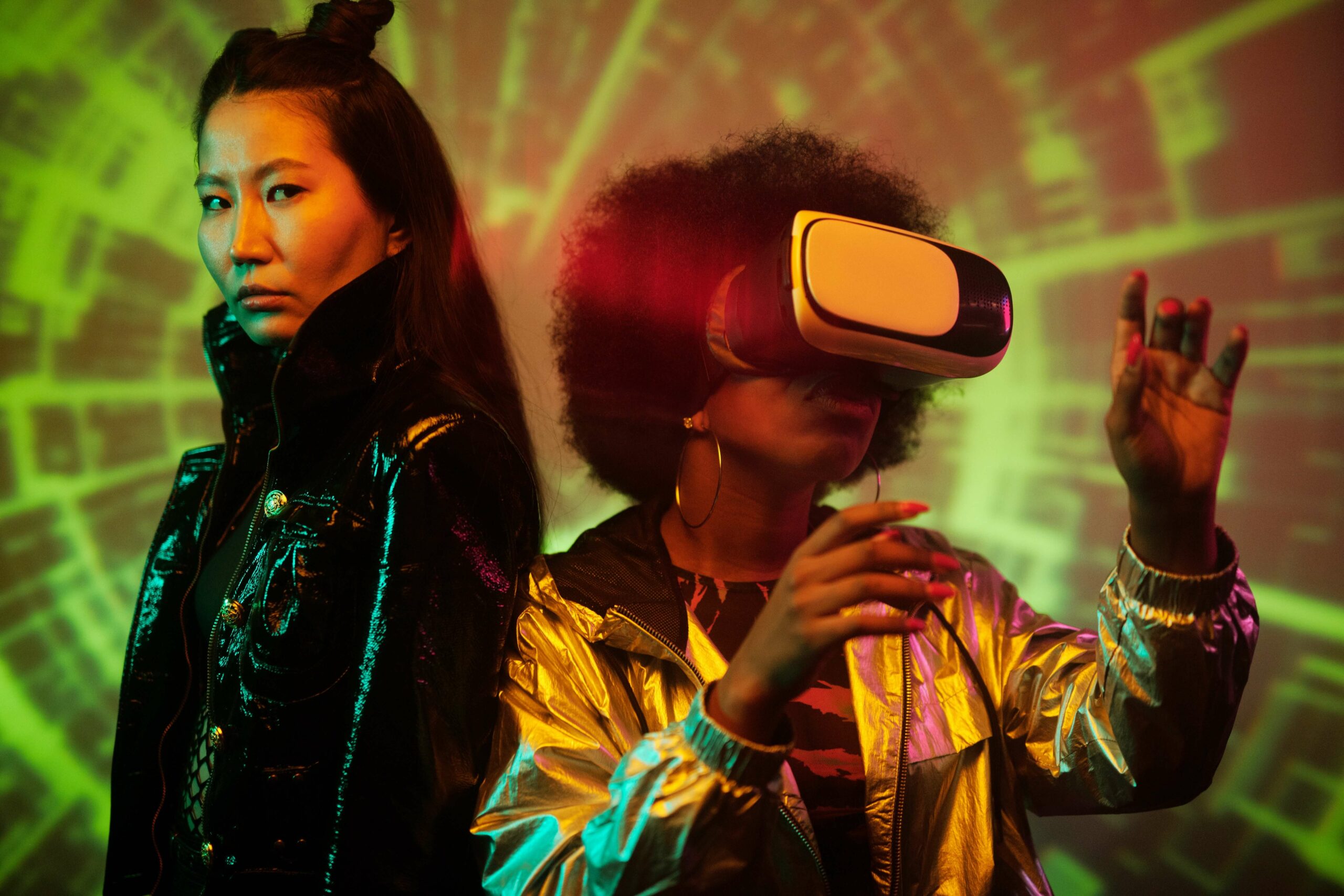Quantfury Gazette
The metaverse is a mystical place

The name comes from the 1992 science fiction classic Snow Crash by Neal Stephenson. It is a digital world where people are represented by avatars and meet up online.
The tech giants in the West are trying to turn this imagined metaverse into a reality. They are acquiring and developing the hardware and accompanying software to make it happen.
Facebook (NASDAQ: FB) bought Oculus, a VR headset maker, for $2 billion in 2014 and integrated it into its platform. Microsoft (NASDAQ: MSFT), a software and gaming company has also developed their own VR headset, the HoloLens and in March completed a deal with the US army to provide augmented reality (AR) on the battlefield.
Thanks to the Covid pandemic and the accompanying lockdowns, a lot of employees have been logging in to work from home. Zoom (NASDAQ: ZM) has become a household name as a communications tool. But Spatial, a lesser known virtual reality meeting software compatible with both the Oculus and HoloLens, takes remote work a step further and allows users to create a 3D avatar and interact with other users and objects in a digital environment. Now you can work in the metaverse.
Another industry where VR has taken off is in the world of gaming. Gaming companies like Roblox (NYSE: RBLX), Epic and Minecraft, owned by Microsoft, have integrated VR into their platforms to increase engagement with their players, many of whom are kids. The next generation is growing up in an era where living in the digital world is the norm.
Epic has hosted musical performances in the massively popular Fortnite game, featuring mega artists like Travis Scott and Ariana Grande. New shows have recently been announced. These virtual concerts were a great replacement for the live entertainment cancelled due to the pandemic, and will likely remain long after things get back to normal.
Roblox has its own virtual economy with its own currency called Robux. The Minecraft world is also virtual and compatible with the Oculus and Microsoft headsets. As if kids were not spending enough time playing video games. Western politicians have often blamed social media and video games for many societal ills but have yet to take any action.
China’s answer to excessive internet usage by kids is to control how long they can spend online. New regulations restrict those under 18 years of age to 3 hours gaming per week. Meanwhile, Western big tech and gaming companies are promoting a 24/7/365 metaverse, so they can capture your eyeballs and pepper you with ads.
Do Chinese regulators have the right idea, telling youngsters to unplug… or are they just delaying the inevitable?
Want to get published in the Quantfury Gazette? Learn more.
